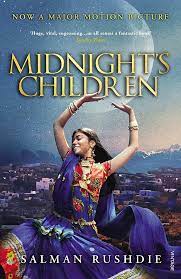- Power in Cultural Studies
- Importance of Media Studies in our Digital Culture
- Who can be considered as a 'Truly Educated Person'?
1. Where does power come from?2. How is it exercised?3. What can you do?
'Power is the ability to make others do what you would have them do'.
Power + Character = Great Citizenship
- Media Ownership
- Advertising
- Media Elite
- Flack
- The Common Economy
Propaganda is central in media studies. Elite media are agenda setting media who set the general framework which is being followed by the local media including the selection of topics, distribution of concerns, emphasis, framing issues, filtering information and many other aspects. These aspects determine, select, control, shape, control, restrict which serves the interest of the dominant elite group. You all may have a question why it is so. You might have seen full page advertisements or various corporate companies in the newspaper. right? So the source of larger income of these media comes from advertisement. The first two filters are the same- Media ownership and Advertising. The Ultimate motif of all mass media orgs is profit. Media costs more than consumers will pay: Advertisers fill the gap. What do advertisers pay for? Access to audiences. “It isn’t just that the media is selling you a product. They’re also selling advertisers a product: you.”
The Third Filter Media elite comes here. In simple terms, journalism struggles to keep those in power in check because the system encourages cooperation. Big entities like governments and corporations know how to influence the media by giving them exclusive stories and expert interviews. They make themselves important to the whole journalistic process. If you try to challenge those in power, you might end up on the sidelines, losing your access to valuable information.
Post Truth and Media:
In this Post-truth era, we are constantly getting manipulated information from media in huge amount. Media entities are taking away people from the reality to the fakeness of the corporate and political world that can't be avoided. Noam Chomsky while talking about the truly educated person emphatically asserts that a truly educated person is the one who constantly keeps asking the questions whether it can be higher authorities, government, elite group or even within their educational concerns. Due to the Digital media platforms the spread of fake news or manipulated information are being spread widely over the world. While opening the mobile phone we come across so many news and information. What to believe is our hand and for that questioning and personal research over that remains necessary. Thus in the Post-Truth era which is full of misinformation, it remains essential to keep questioning.
Click here to visit my read my blog on Post-Truth
Media masks the oppressive condition of people and thus to study media culture remains a significant aspect in the cultural studies.
3. Who can be considered as a 'Truly Educated Person'?
Noam Chomsky, as we have referred in the post-truth as well talks about 'Who can be Called a Truly Educated Person' . Is it about getting degrees? No. It isn't. Initially, Chomsky refers to classic views on education, particularly those of Wilhelm von Humboldt, a leading humanist figure of the Enlightenment and founder of the modern higher education system. Humboldt argued that the ability to inquire and create independently, without external controls, is a core principle for a fulfilled human being.
He emphasises the importance of questioning and creativity in education. He shares an anecdote from a physics class, where the focus was not on what was covered in the class but on what students discovered. Being truly educated, according to Chomsky, is the ability to inquire and create based on the understanding of available resources.
He outlines the skills of a truly educated person, including knowing where to look, how to formulate serious questions, questioning standard doctrines, and developing the ability to shape meaningful questions. That is why Bard sir often gives us a task to raise a few questions based on the understanding of the particular topic. True education involves not just memorization but also the capacity to independently navigate challenges, question assumptions, and collaborate with others.
He further says that for an educational system, from primary to graduate school, cultivating the ability to inquire, create, and collaborate independently remains crucial. He acknowledges that, in the best cases, some educational systems succeed in flourishing these qualities, leading to individuals who, by his standards, are truly educated.
I hope you have gained the explanation of these three questions.
{Words: 1869
Images: 2
Videos: 3}
Thanks for visiting...




.png)
.png)

.png)












